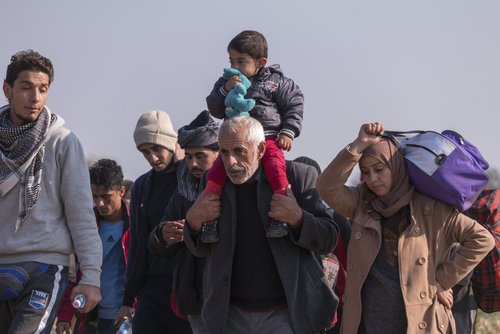The large immigration of refugees in the last months has shown, that the EU countries should cooperate more closely on migration and development policy. This is not only the opinion of the Expert Council of German Foundation on Integration and Migration – it is also confirmed by calculations of the Cologne Institute for Economic Research.
All of Europe must act
In 2015 141,000 of the 308,000 persons who received refugee protection in the EU lived in Germany. This amounts to 45.8 percent. In second place was Sweden with 32,000 or 10.5 percent, followed by Italy with 30,000 or 9.6 percent. This is shown by computations of the Cologne Institute for Economic Research. Considering only refugees from Syria, the share of Germany amounted even to 62.6 percent, as Germany was responsible for 101,000 of the 162,000 persons EU-wide. The number for Sweden amounted to 18,000 or 11.4 percent.
These figures show that the implementation of the EU-Turkey Pact might lead to problems, as hardly enough EU member will voluntarily receive a large number of Syrian refugees without mandatory rules. Therefore, the member states must finally agree on a European distribution mechanism – and this has to happen soon. Only this way, refugees can be quickly absorbed and integrated and the fiscal burden can be distributed more equally.
However, the collaboration in Europe should not end with the topic of refugees. Also with respect to labour migration of skilled workers, cooperation is necessary, although the employment situations and demographic trends in the individual EU countries vary significantly. In a European Single Market, it is important for companies that professionals from third countries can also be deployed in a timely manner in other EU countries when necessary. In addition, as part of a joint development policy, the EU countries should establish common educational programs in the countries of origin of the immigrants. Such measures can help persons who are interested in migrating to prepare for their stay in Europe and, additionally, prevent that migration of skilled workers will lead to a brain drain.
More on the topic

Pharmaceutical industry: Increasing pressure on the labor market
The shortage of skilled workers poses significant challenges for pharmaceutical companies in Germany and is expected to become increasingly problematic in the context of demographic changes. Concerning Germany's positioning in the international competition ...
IW
Immigration from Latin America: Successes and potential for securing skilled workers
Against the background of the baby boomers leaving the labour market, Germany will be increasingly dependent on skilled workers from abroad in the coming years in order to secure growth and prosperity.
IW
